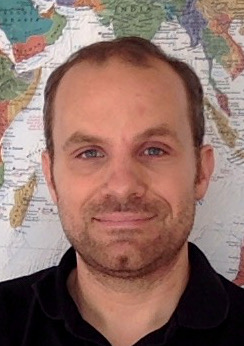Johannes Textor
Background
- Associate Prof, Radboud University, NL, since 2020
- Assistant Prof, Radboudumc, NL, since 2019
- Tenure-track, Radboudumc, NL, 2015-2019
- Postdoc in Theoretical Biology & Bioinformatics, University of Utrecht, NL, 2011-2015
- PhD in Theoretical Computer Science, University of Lübeck, Germany, 2011
About
I lead the Computational Immunology group at the Data Science section of the Institute for Computing and Information Sciences at Radboud University and the department of Tumor Immunology at the Radboud Institute for Molecular Life Sciences, Radboud University Medical Center (Radboudumc), Nijmegen, The Netherlands. We use simulation models (like this one), machine learning, and causal inference methods (like DAGs) to study information processing in the adaptive immune system.
Our work has three main goals. First and foremost, we want to understand how the immune system perceives and interacts with "abnormal" information coming from pathogens or tumors. Such knowledge is useful to design immunological treatments such as vaccines or tumor immunotherapies.
Second, we are interested in designing immunologically inspired machine learning and information processing systems—Artificial Immune Systems. We use these to understand more fundamentally how the immune system stores, retrieves and modifies information, and how this differs from the second major information-processing system in our bodies, the central nervous system. Ultimately, our goal is to understand why these two marvelously complex information-processing systems exist in our bodies, why they are so different in their architecture, and how they complement each other.
Finally, we are happy to work with an amazingly diverse and inspiring lot of colleagues at the Tumor Immunology department, and we try our best to help them in their research by helping to address computational questions and identifying appropriate statistical methodology.
